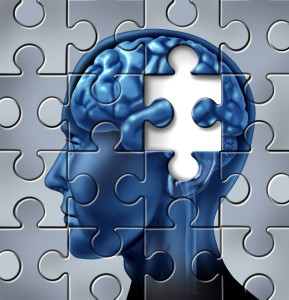 It is estimated that the volume of knowledge is doubling at least every 8 years. This rate of expansion overwhelms our capacity to stay abreast of emerging knowledge, even in the ever-narrowing micro-specialization of medical practice. New careers are created while other fields die out. Rapid access and effective delivery of information becomes paramount to both patient safety and professional success. It is not surprisingly, then, that the potential for delayed or incorrect diagnosis exists. Recent efforts to combat this problem have focused on decision support – improving the availability of information via expert consults (e.g. telemedicine), web based peer-reviewed scholarly information (e.g. “Up To Date”), and various cognitive aids at the point of care (signs, interfaces with the electronic medical record, and smart phone apps).
It is estimated that the volume of knowledge is doubling at least every 8 years. This rate of expansion overwhelms our capacity to stay abreast of emerging knowledge, even in the ever-narrowing micro-specialization of medical practice. New careers are created while other fields die out. Rapid access and effective delivery of information becomes paramount to both patient safety and professional success. It is not surprisingly, then, that the potential for delayed or incorrect diagnosis exists. Recent efforts to combat this problem have focused on decision support – improving the availability of information via expert consults (e.g. telemedicine), web based peer-reviewed scholarly information (e.g. “Up To Date”), and various cognitive aids at the point of care (signs, interfaces with the electronic medical record, and smart phone apps).
Why is this decision support ineffective? Three key facets of human psychology are at least partially responsible: 1. We are bad at knowing when we need help. Most cases are straightforward, and as the saying goes, “common things are common.” Therefore, if we encounter a case that appears to be common, but is actually more complex, we are unlikely to recognize it as such, and unlikely to seek decision support. 2. We are often biased by our early impressions, so that we overemphasize certain data and ignore other data when we are seeking expert consultation. (This is a process called “sensemaking” – watch this video to learn more). This presentation, in turn, may increase the likelihood of confirmation of our initial (mis)diagnosis. 3. We generally make decisions earlier than we are aware, and usually do not change our minds once our decisions are made. The human brain generally makes a mental representation within seconds of data consideration, and once that cognitive set develops, we are subconsciously less receptive to alternative explanations even when they are available to us.
These three reasons are among the human factors elements that prevents modern decision support, even that which is integrated in the electronic medical record, from improving our diagnostic accuracy. New research must focus on addressing these areas. At least one group (Kostopoulou et al) has already done so, and David Gaba (Stanford) and I have a paper coming out soon that addresses these problems as well. Creative tools and strategies will need to be developed and implemented. What do you think is the best way to tackle the diagnostic error epidemic?







